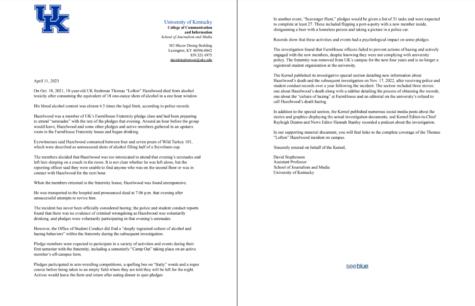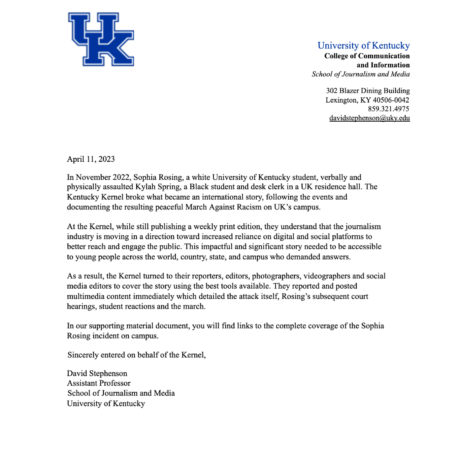Bring back sex education
October 13, 2016
Sexual health education has been one of the most debated and divisive topics across state legislatures.
Many states have failed students by enforcing abstinence-only education programs or not having any kind of sexual education to prepare them for situations they will encounter likely as early as middle school.
University Health Service accommodates for some states’ ignorant choices thanks to their sexual health class, available to females before they get a Well Woman check or upon request thanks to their student health plans.
The short class teaches what many public schools neglect: proper procedures for health checks for women, ways to prevent unplanned pregnancy and the transmission of STIs, and descriptions of common exams women should get to maintain healthy bodily functions.
One of the great things about the class is its emphasis on STI testing, and practicing effective birth control methods.
Effective birth control education and encouragement to get on one of the many methods has been shown to reduce the number of teenage pregnancies by up to 60 percent in comparison to abstinence-only education, according to a study published at the University of Washington in 2008.
While sexual health education is important for both partners, the burden often falls on women to be the responsible party.
Men are not as likely to come in to learn about birth control methods, and this is due in part because they face fewer consequences from poor choices in sexual relationships.
Women are more likely than men to contract infections and diseases, and treatment of them is more difficult for women. In the event of an unplanned pregnancy, women face physical consequences that effect their physical and mental health, financial stability, and, in many cases, their careers and education.
The only draw-back to the class is that it is required by UHS before female students can make an appointment with a gynecologist for any reason other than urgent needs, like fear of an infection.
It is important that students have the opportunities and encouragement to learn about sexual health, but some students can suffice with just an appointment to see a gynecologist.
Depending on availability, the extra requirement can add weeks in waiting, and many women would probably like to facilitate getting on birth control, and being checked for infections, cancer and other diseases much faster.
In addition, gynecologists are capable of giving their patients the same resources and understanding of proper sexual health, so a middleman is not always necessary for people interested in a check-up with a doctor.
Effective sexual health education is a necessity, and it’s important that our university extend the resource to students in whatever way they’ll receive it, whether it is a short optional class, during an appointment with a doctor, or even through outreach of student groups on campus.
Email [email protected]


















































































































































